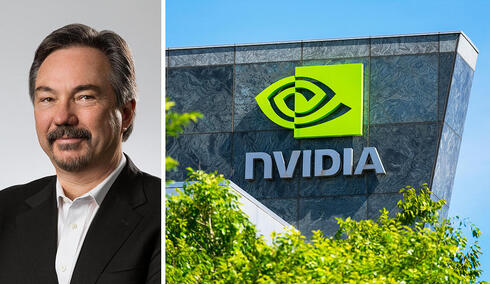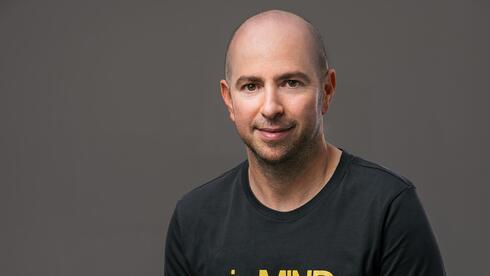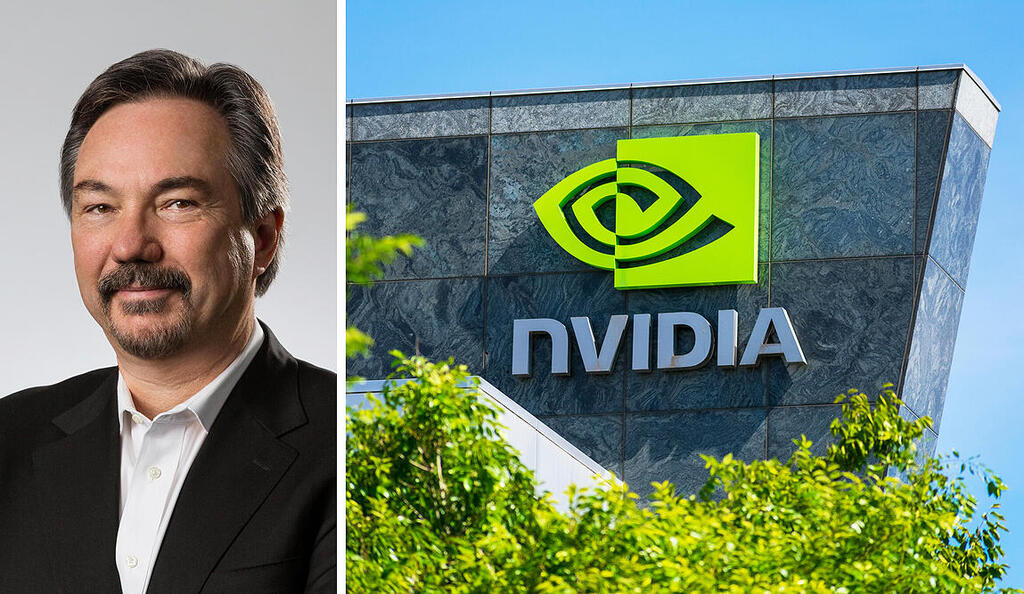
"Nvidia's success is not luck. Jensen saw the AI revolution long before anyone else"
"Every field now uses artificial intelligence. It's no longer a development, it's reality," added Greg Estes, Vice President of Corporate Marketing and Developer Programs at Nvidia
"Nvidia's success is not luck. Jensen saw the AI revolution long before anyone else. I still remember the email he sent on a Friday night, and right after that, on Monday, we became an artificial intelligence company," Greg Estes, Vice President of Corporate Marketing and Developer Programs at Nvidia, said in an exclusive interview with Calcalist at the company's annual GTC conference in San Jose, California.
The market cap of the company founded by CEO Jensen Huang is currently at $2.25 trillion, making it the third largest company in the world after Microsoft and Apple.
Greg, how do you tell the story of the company?
"What people don't understand is that we've always been about how to speed up computers. That was our whole business in the beginning and it's our business today. When Jensen and his two partners founded the company, they didn't do it as a gaming company, they just built an extraordinary graphics processor. By then there were something like 30 graphics companies and it was not clear at all that Nvidia would beat them all.
"At a certain point, very smart people realized that you could take the graphics processor and turn it into a unit that does very complicated calculations. Then they realized that if you can do these very complicated calculations - you can build a supercomputer. The next step was that those people, along with others, realized that it was possible to teach computer deep learning (a collection of machine learning methods based on artificial networks). And then exactly at this point we realized that the architecture we developed could be perfect for artificial intelligence. Now you can say that our story focuses on computer acceleration - and as you can see, every industry understands how much can be gained from this."
How do Nvidia's developments help businesses?
“We see today that the world of programming is moving from the use of ordinary processors to more advanced computers based on artificial intelligence. One of the reasons people are interested in our company is this transition - from one model that was actually still in IBM 360 to a completely different model."
In the company's last conference call right after the reports were released, Huang said that the industry has reached a tipping point. What did he mean?
"We have now reached a point where people are adopting AI technology in every field. When you think about it, if you had come to GTC a few years ago you would have seen us presenting future developments, whereas now you see companies from all fields already using our tools. From banks, through agriculture, entertainment, energy - every field uses artificial intelligence. It's no longer a development, it's reality."
Beyond the story of Nvidia that you talked about earlier, how do you describe the ecosystem in which it works?
"We make the most sophisticated processors in the world, but we are not a processor company. We provide the platforms to programmers and they build their business on our platform. So basically the only reason they use our products is to make their application faster. We give them all the reasons in the world to use our products, and so they do."
Do you invest in startups at the beginning of their journey?
"Beyond direct investment, this is exactly the way we invest in these companies at the beginning of their journey. Every time we work with startups and they take advantage of our platform, we give them a reason to continue using it."
How do startups from Israel fit into this investment?
"In Israel, Nvidia has close to 1,000 startups operating in the NVIDIA Inception start-up program, which provides companies with technological support and guidance, a connection to investors, business and marketing support, access to leading technologists in their field around the world, and more. For comparison, in 2021 the program had only around 250 startups, a number that has increased fourfold in the last three years, out of something like 18,000 companies in the world that we give this opportunity to. Even here at GTC you can see a lot of startups that are part of our business environment."
Even so, it seems like it's easier for large corporations to adopt your technology rather than that of small startups.
"If you talk to startups, you will see that they are investing in AI today and leveraging large language models (LLMs) that are available in open source. They are then using technologies like RAG (Retrieval Augmented Generation) to increase the accuracy and efficiency of the models. You can develop many AI capabilities without creating the base models yourself."
This platform you are talking about is expensive. It is not really accessible to everyone.
"It's much more financially accessible than you think. When startups adopt our technology, they manage to increase their number of users and thus actually increase their income. Their top line increases and their cost is small - which also increases their bottom line. They succeed in doing more while paying less."
According to studies, only hundreds of millions use artificial intelligence worldwide every day. Isn't that too little? How can artificial intelligence reach more people?
"That sounds too low a number to me. Think how many people have phones around the world. There is no mobile phone that doesn't use artificial intelligence. People use artificial intelligence without knowing they are using it. So I think billions of people around the world use this technology every day."
Still, would you like artificial intelligence to be more accessible?
"I have no doubt that there are many people in the world who do not have access to technology like people in the U.S. or Israel. Look, for example, at what Microsoft is doing with Copilot and the implementation in Office. Look at how much Facebook embraces it and how much TikTok and Snapchat are using it. It is found almost everywhere."
If someone wants to enter the world of artificial intelligence, what do you suggest they do?
"We have a learning program called NVIDIA DLI (Deep Learning Institute), and as of now, almost 500,000 individuals have been trained. This occurs both in physical settings and online, depending on the program that best suits them. We provide artificial intelligence education to nearly 5,000 developers, conducting physical classes rather than online sessions. Additionally, for large organizations, we offer package deals where we come to teach employees about artificial intelligence.
"We also collaborate with universities, training lecturers who then impart their knowledge to their students. Furthermore, we train young programmers and issue them certificates, which can significantly enhance their resumes and job prospects.
"Israel, for instance, enjoys a significant advantage in this area due to its stable educational environment for technology. In general, I believe individuals should start learning artificial intelligence as early as possible. There's no age limit. I'm aware of a good program for studying AI in high schools in Israel. When you consider it, even as a parent, you want your child to learn about artificial intelligence so they won't be left behind."
Finally, where do you see Nvidia two years from today?
"What we're doing now, and that's exactly what our conference is about, is that we're taking our core technology and making it accessible through the cloud. That's where we're heading."














